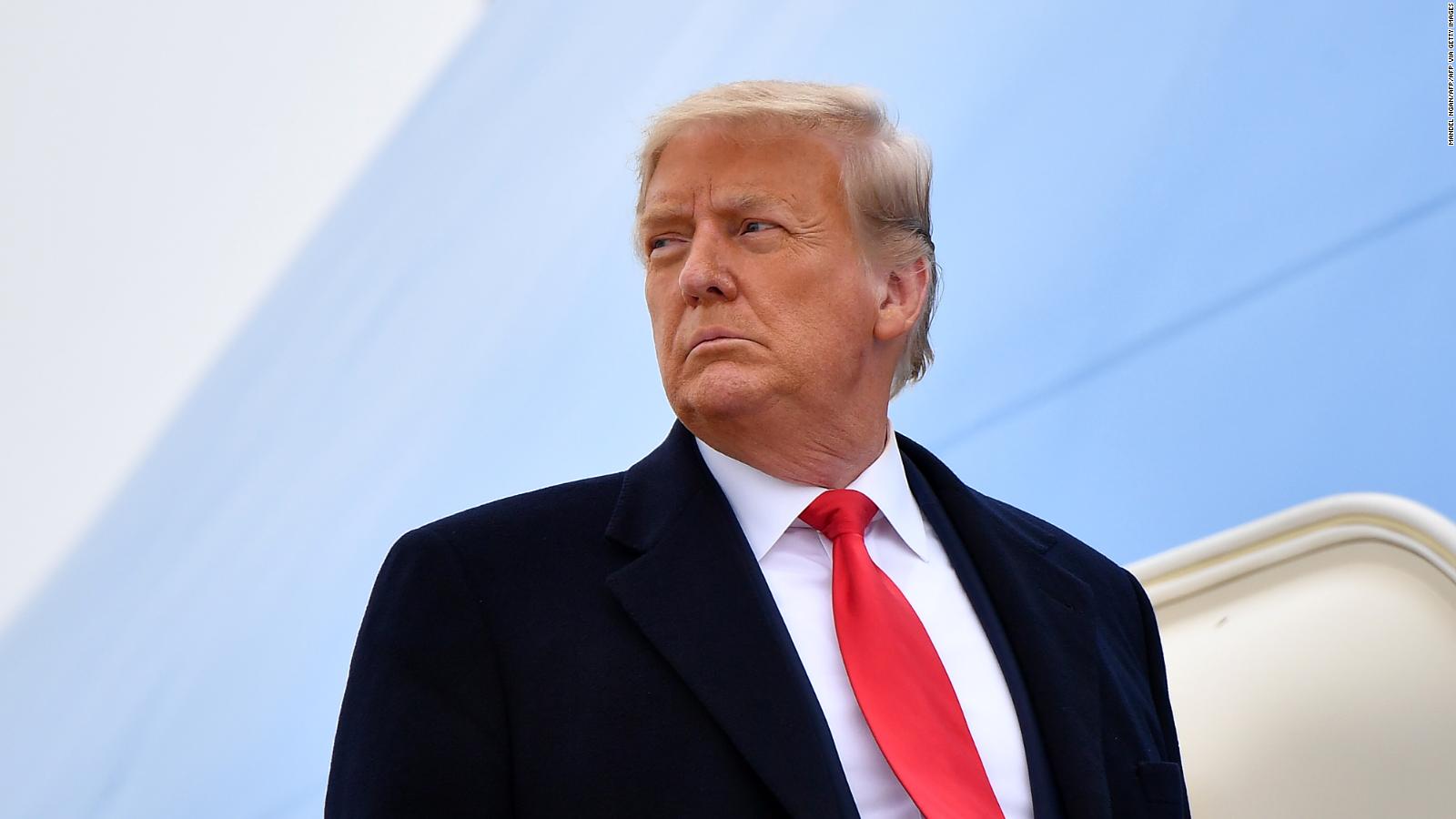New emails show how the White House aide, the White House secretary general and other allies of former President Donald Trump lobbied the Justice Department to investigate allegations of voter fraud in the 2020 election.
In addition, Trump ordered allies to pressure then-Attorney General Jeffrey Rosen to join the legal effort to challenge the election result. The information comes from a batch of emails published by Democrats in the House Oversight Committee on Tuesday.
Emails from Justice Department and White House officials show how Trump’s allies pressured Rosen to consider false and outrageous allegations that the election had been stolen. They also sought to get the Justice Department to formally endorse the false claims.
The documents offer a window into how Rosen dealt with political pressure from the White House shortly after he was appointed to head the department in the final weeks of the Trump administration.
The role of Rudy Giuliani
Amid the pressure, Rosen said he refused to speak to Trump’s personal attorney, Rudy Giuliani, about his false claims that the 2020 election was stolen.
As Capitol Riots Raised, Trump Tried To Call Senators To Override Elections
Mark Meadows, then the White House chief of staff, tried to get Rosen to set up an FBI meeting with a Giuliani ally pushing a conspiracy theory that Italy was using military technology and satellites to somehow shift the votes to Joe Biden. . However, Rosen said he would not help Giuliani.
“I flatly refused, said I would not give Giuliani or any of his ‘witnesses’ any special treatment, and reaffirmed once again that I will not speak to Giuliani about any of this,” Rosen wrote to then-Deputy Attorney General Richard Donoghue.
More pressure from Trump for the elections
The new emails provide additional details to reports earlier this month from Citizen Free Press, The New York Times and others about those sent by Meadows to Rosen after the election.
Those messages revealed how the White House’s top adviser had urged the Justice Department to take action on Trump’s behalf in his challenge to the election result.
The emails included a list of complaints about voting in New Mexico, alleged “anomalies” in a Georgia county, and claims about Italian satellites.
The messages show how Trump steered his allies toward Rosen, appointed acting attorney general after William Barr’s resignation in December 2020.
Barr left office after saying publicly that there had been no widespread fraud in the elections.
Kurt Olsen, a private attorney, approached John Moran at the Justice Department on December 29 to request a meeting with Rosen. He promised that he could meet at the Justice Department an hour in advance.
He attached a draft complaint inspired by the Texas Supreme Court lawsuit that unsuccessfully challenged election results in four states.
In addition, she wrote in a follow-up email that Trump directed her to meet with Rosen to discuss the United States taking similar action.
“The president of the United States saw this complaint and last night ordered me to report in person to Rosen today to discuss the possibility of initiating this action,” Olsen wrote. “I have been ordered to report to the President this afternoon after the meeting.”
More pressure on the Justice Department
On the same day, Trump’s aide in the White House also sent the draft complaint to Rosen and Donoghue for review. He said it had also been shared with Meadows and White House attorney Pat Cipollone.
On December 14, Trump’s aide sent Rosen and Donoghue a document claiming to show voter fraud in County Antrim, Michigan. An aide to Donoghue sent the document to US prosecutors for the eastern and western districts of Michigan.
By the end of the year, it was clear that Rosen and Donoghue had grown weary of the White House lobbying campaign.
The emails show how Meadows lobbied the Justice Department to investigate allegations of fraud made by Trump allies such as Cleta Mitchell. This attorney assisted Trump on his Jan. 2 call when he pressured Georgia officials to “seek” his votes.
In an email on Jan. 1, Meadows says there were “allegations of signature matching anomalies” in Fulton, Georgia.
He also asked Rosen to have a Justice Department official “address this matter immediately to determine if there is any truth to this allegation.”
Rosen forwarded the email to Donoghue later that day, saying, ‘Can you believe this? I will not reply to the next message.
“At least it’s better than the last one, but that doesn’t say much,” Donoghue replied.
Looking for anomalies that favor Trump
When Meadows sent Rosen a YouTube video link about Italian satellites, Rosen forwarded it to Donoghue. “Pure madness,” he replied.
In another exchange, Donoghue told Steve Engel of the Justice Department’s Office of Legal Counsel that he wanted to meet with him “about some antics that might end up on his radar.” That indicates there was some concern that the Office of Legal Counsel would have to influence potential problems.
The new emails released by the committee include correspondence with Jeffrey Clark. It’s about a Justice Department lawyer who tried to convince the former president to remove Rosen.
Clark further sought to have Trump use the department to undo the Georgia election results, The New York Times reported in January.
In what appears to be the result of a January 3 meeting between Trump, Clark, Rosen and others, then-Justice Department official Patrick Hovakimian wrote: “It appears that Rosen and the cause of justice won.”
“Unbelievable,” replied John Demers, the head of the Homeland Security Division, who will be leaving the Justice Department at the end of the month.

